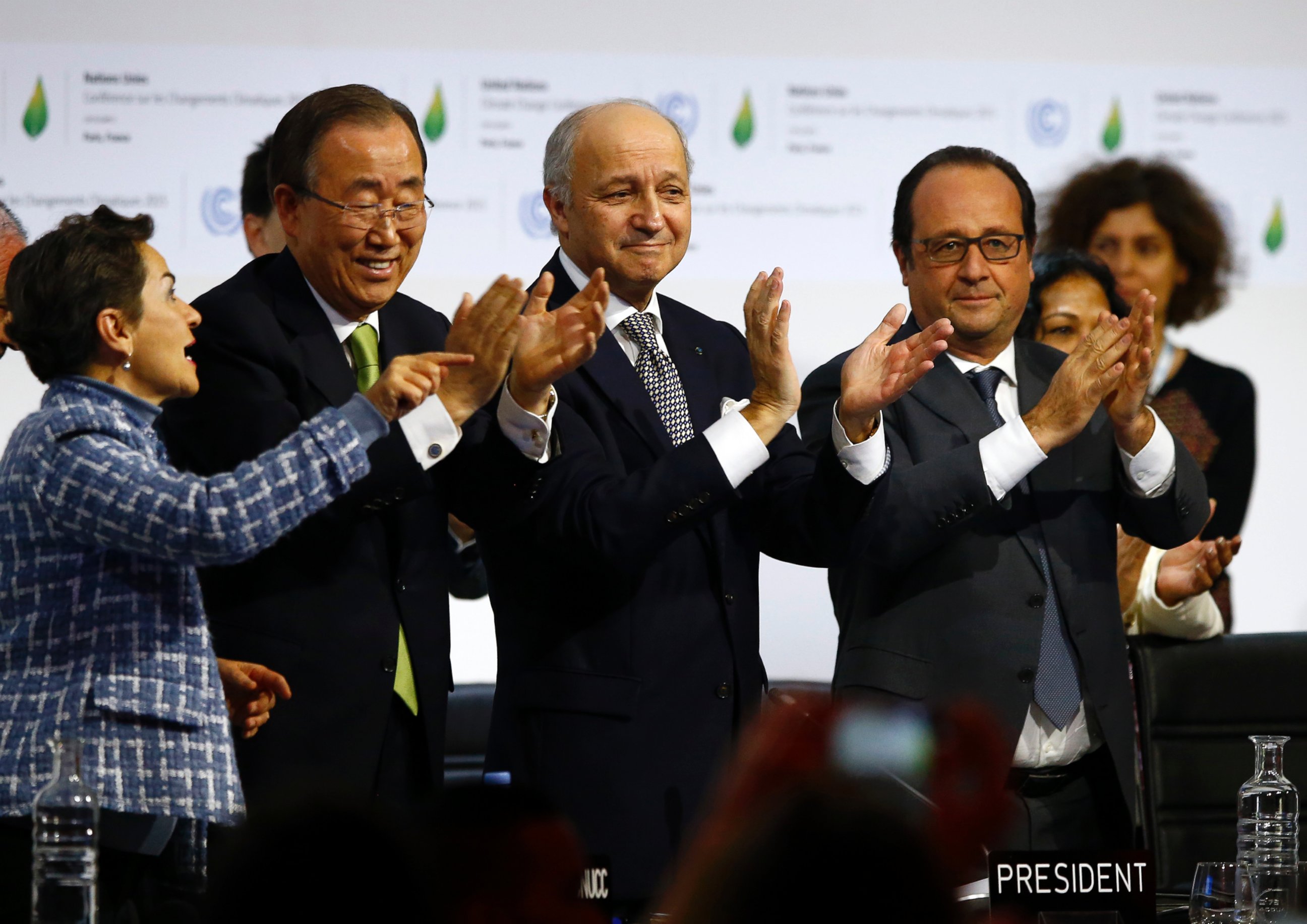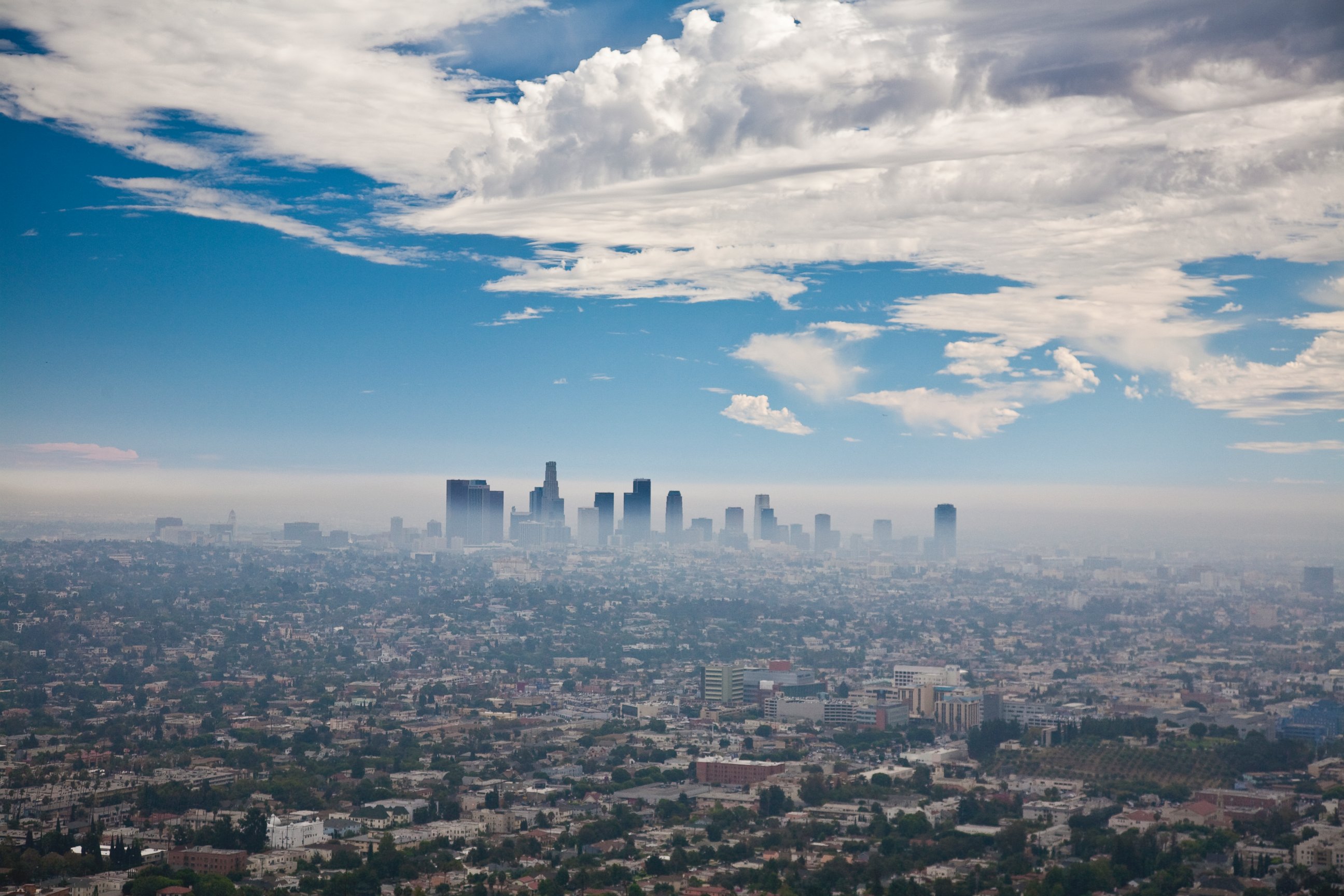Fact-checking Trump's speech on the Paris Accord
Trump said his decision to withdraw from the agreement would benefit the U.S.
— -- When President Trump formally announced Thursday that the United States will be withdrawing from the Paris Climate Agreement, he said the decision would help bring more jobs, less debt and cleaner air and water to the country.
"As president, I can put no other consideration before the well-being of American citizens," Trump said. "The Paris Climate Accord is simply the latest example of Washington entering into an agreement that disadvantages the United States to the exclusive benefit of other countries, leaving American workers, who I love, and taxpayers to absorb the cost in terms of lost jobs, lower wages, shuttered factories and vastly diminished economic production."
While the decision fulfills a campaign pledge to his core supporters, it immediately drew criticism from international leaders, U.S. politicians and many other American citizens. Trump said he would be open to renegotiating a re-entry to the accord, a move European leaders said is not possible.
But in laying out his justification for withdrawal, Trump made some comments that didn't always match the facts. Below, we fact-check some of his Rose Garden statements.
The US has contributed $1 billion, and no one knows where the money is going
Trump slammed the Green Climate Fund, which was established under the U.N. Framework Convention on Climate Change to help developing countries mitigate and adapt to climate change through pledges from developed countries. A total of 43 governments had pledged to support the Fund as of May 12, including nine developing nations, according to the Fund's pledge tracker. The United States had committed to providing $3 billion.
Trump said the United States "has already handed over $1 billion."
That's a matter of some dispute. Before President Obama left office, the State Department said it had pledged another $500 million, which would bring the total U.S. contribution to $1 billion. But according to the Green Climate Fund's pledge tracker, America's pledge is "subject to the availability of funds" and only $500 million had been provided as of May 12.
Trump also slammed what he sees as the fund's lack of accountability.
"Nobody even knows where the money is going to. Nobody's been able to say where is it going to," Trump said.
But this is also untrue. The Fund's website gives detailed descriptions of the projects it supports, including current initiatives supporting community-based natural resource management in Namibia, an urban flood management program in Senegal and solar energy development in Chile. It also outlines its multilayered approval process for funding proposals. The fund also has an Independent Integrity Unit where any person can report fraud, corruption or other concerns about grantees.

Losing out to China and India on coal
"China will be allowed to build hundreds of additional coal plants. So, we can't build the plants, but they can, according to this agreement," Trump claimed. "India will be allowed to double its coal production by 2020."
This statement is not entirely true, either. The Paris Agreement doesn't actually contain the word "coal" at all. It requires countries to publicly announce how they plan to meet carbon emissions reductions goals, but it doesn't dictate whether countries build new plants.
China has already reduced its dependence on coal and the number of coal plants. The country's National Energy Administration announced in January that it was canceling construction on more than 100 coal-fired plants.
For its part, one Indian company did put forth a plan to double its coal production by 2020, according to a 2015 report in India's Economic Times. But that plan is dependent upon whether the company can secure the land and proper clearances to do so, the report found.
India did pledge to reduce emissions by 33 to 35 percent from 2005 levels by 2030, which means that new coal production would need to be balanced with other reductions to achieve that.

Costing America jobs
"Compliance with the terms of the Paris accord and the onerous energy restrictions it has placed on the United States could cost America as much as 2.7 million lost jobs by 2025," Trump said, citing a study by the pro-business group National Economic Research Associates.
"This includes 440,000 fewer manufacturing jobs; not what we need," he added.
But most experts disagree with Trump on this one, saying that dropping out of the accord will not necessarily spur job creation and that the agreement would not have definitively resulted in job losses, either.
Renewable energy industries have actually seen some of the largest booms in growth and employment. Already in the United States, nearly three times as many Americans work in solar than in coal, according to the Department of Energy.
In the days and weeks leading up to Trump’s announcement, some of the largest employers in the country urged him to stay in the deal. From tech to retail to energy companies, businesses from coast to coast said resoundingly that the accord would actually be good for jobs and global competitiveness.
“By expanding markets for innovative clean technologies, the agreement generates jobs and economic growth,” a group of businesses, including Apple, Google, Microsoft and PG&E, wrote in an ad about the accord.
ExxonMobil urged Trump to stay in the Paris Accord in a March 22 letter to the White House. In the letter, ExxonMobil Environmental Policy and Planning Manager Peter Treienberg wrote that the company believes the agreement provides “an effective framework for addressing the ricks of climate change,” an assertion that the company’s CEO had also made previously.
GE Chairman and CEO Jeff Immelt took to Twitter to criticize Trump’s decision, writing: “Climate change is real. Industry must now lead and not depend on government.”
The Chinese government’s recent decision to cancel the construction of some coal-fired power plants and invest in green-energy projects instead is expected to create an estimated 13 million jobs by 2020.
Representing Pittsburgh, not Paris
Trump also said his decision to withdraw from the major international agreement stemmed from his being elected to “represent the citizens of Pittsburgh, not Paris."
But it seems the Pennsylvania city doesn't want his help. Pittsburgh Mayor Bill Peduto today was one of dozens of mayors to issue an executive order saying his city "remains fully committed to the principles of the Paris Agreement." Pittsburgh is one of more than 60 cities that have independently pledged to uphold the Paris Agreement despite the president's decision to withdraw from it.
The governors of New York, California, and Washington formed the U.S. Climate Alliance Thursday to bring together states committed to sticking to the agreement.
Peduto's executive order says that "climate change is a worldwide problem recognized by government, business and academic leaders" and that "protecting our planet is of utmost importance to our children and grandchildren."
Earlier in the week, Peduto reaffirmed Pittsburgh's commitment to the Paris Agreement on Twitter.
ABC News’ MaryAlice Parks contributed to this story.




